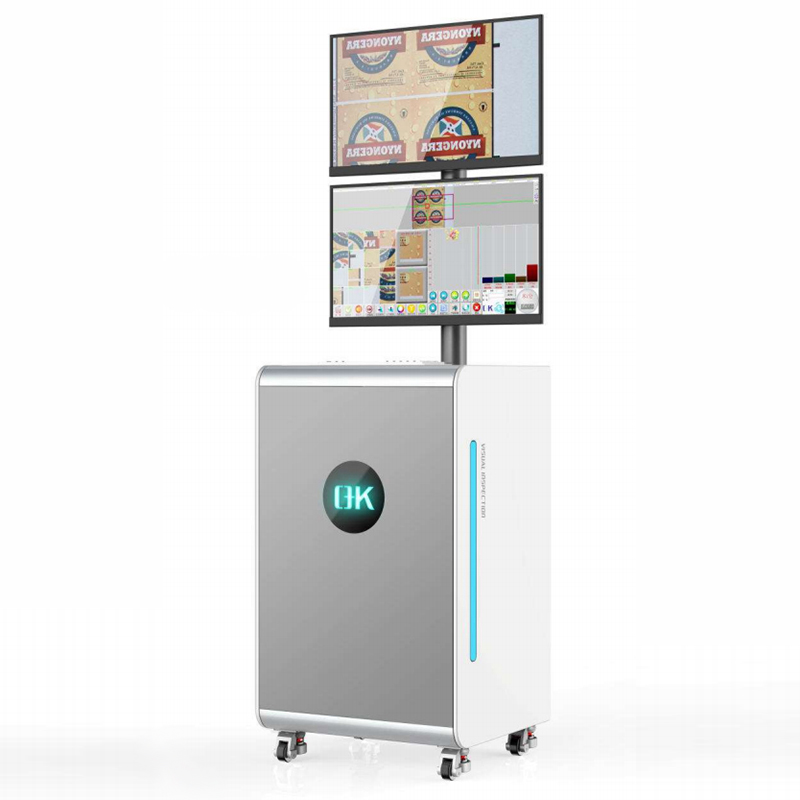Digital printing has transformed the print industry, providing unprecedented flexibility, speed, and cost-effectiveness. However, ensuring high-quality digital prints necessitates meticulous attention to various quality metrics. These metrics serve as benchmarks for assessing and maintaining print quality, guaranteeing that the final product meets the desired standards. This article delves into the essential metrics for evaluating digital printing quality, highlighting their importance and how they can be optimized.

Key Metrics for Evaluating Digital Printing Quality
Color Accuracy
Delta E (ΔE): A numerical representation of the difference between the intended color and the printed color. A lower ΔE value indicates higher color accuracy, with values under 3 generally considered acceptable in most applications.
Color Gamut: The range of colors a printer can produce. A wider color gamut ensures that the printer can reproduce a broader spectrum of colors, enhancing overall print quality.
Gray Balance: Ensures that neutral grays are printed without color casts, which is vital for maintaining the integrity of black-and-white images and neutral tones in color images.
Resolution and Detail
Effective Resolution: Refers to the actual resolution achieved on the printed material, which may differ from the nominal resolution due to various factors such as ink spread and media characteristics.
Linearity: The ability to reproduce fine lines and details accurately without distortion or blurring.
Registration Accuracy
Registration Tolerance: The allowable deviation from perfect alignment, typically measured in microns. Lower tolerance values indicate better registration accuracy.
Dot Gain/Spread: The increase in dot size as ink spreads on the paper, which can affect registration and overall print sharpness.
Ink Density and Coverage
Ink Density: Measured using densitometers or spectrophotometers, this metric ensures that the correct amount of ink is applied for each color.
forUniformity of Coverage: Assesses the evenness of ink distribution across the print, critical for large solid areas and gradients.
Surface Finish and Texture
Gloss Level: The amount of light reflected from the print surface, which can range from matte to high gloss. Consistent gloss levels across a print ensure a uniform appearance.
Surface Smoothness: Evaluated using techniques such as profilometry, this metric measures the micro-texture of the printed surface, impacting the visual and tactile experience.
Durability and Longevity
Lightfastness: The resistance of printed colors to fading when exposed to light, crucial for outdoor and archival prints.
Water and Scratch Resistance: Ensures that prints can endure handling and exposure to moisture without significant degradation.
Strategies for Optimizing Digital Printing Quality
Optimizing digital printing quality is crucial for achieving professional and high-quality prints that meet client expectations and industry standards. The following strategies focus on various aspects of the printing process, from equipment calibration to environmental control, to ensure superior print quality.
Regular Calibration and Maintenance
Printer Calibration: Regularly calibrate your printers using calibration tools and software. This helps maintain color consistency and accurate ink application.
Routine Maintenance: Perform routine maintenance, including cleaning print heads, checking ink levels, and inspecting mechanical parts. Regular upkeep prevents mechanical failures and print defects.
Color Management
ICC Profiles: Use International Color Consortium (ICC) profiles for accurate color representation. These profiles help manage color consistency across different devices and media.
Monitor Calibration: Calibrate monitors regularly to ensure that the colors displayed on the screen match the printed output.
Soft Proofing: Use soft proofing techniques to preview how colors will look when printed. This can help identify and correct color issues before printing.
High-Quality Media and Ink
Choose the Right Media: Select high-quality paper or other print media that is compatible with your printer and suitable for the specific job. The right media can enhance color vibrancy and detail.
Use High-Quality Inks: Use manufacturer-recommended inks to ensure compatibility and optimal performance. High-quality inks produce better color accuracy and longevity.
Resolution and Image Quality
Image Resolution: Ensure that your digital files have a resolution of at least 300 DPI for standard printing. Higher resolutions may be needed for large-format prints.
Effective Use of Software: Use photo editing and design software to enhance image quality. Correct issues such as noise, pixelation, and low resolution before printing.
Registration and Alignment
Registration Checks: Regularly check and adjust the registration settings on your printer. Ensure that color layers align perfectly to avoid any misregistration issues.
Dot Gain Control: Monitor and control dot gain, which can cause ink spread and affect sharpness. Adjust printer settings to compensate for dot gain and ensure crisp prints.
Ink Density and Coverage
Ink Density Settings: Adjust ink density settings according to the media being used. Use densitometers or spectrophotometers to measure and ensure correct ink application.
Uniform Coverage: Ensure uniform ink coverage to prevent issues such as banding and mottling. This is especially important for large solid areas and gradients.
Surface Finish and Texture
Consistent Gloss Levels: Maintain consistent gloss levels across prints to ensure a uniform appearance. Choose the appropriate gloss level (matte, satin, gloss) based on the desired outcome.
Smooth Surface: Ensure that the printed surface is smooth and free of imperfections. This can be achieved by using high-quality media and maintaining clean print heads.
Environmental Control
Optimal Conditions: Maintain optimal temperature and humidity levels in the printing area. Extreme conditions can affect ink drying and paper stability, leading to print defects.
Dust and Debris Control: Keep the printing area clean and free of dust and debris. Contaminants can cause print defects and damage equipment.

Quality Control and Testing
Regular Testing: Conduct regular test prints to check for color accuracy, resolution, and other quality metrics. Use these tests to make necessary adjustments.
Quality Assurance Procedures: Establish quality assurance procedures to monitor and maintain print quality. This can include visual print quality inspection system, automated quality checks, and feedback loops.

Conclusion
Maintaining superior digital printing quality involves understanding and optimizing various quality metrics. In a competitive market, excellence in digital printing quality metrics not only satisfies clients but also sets a benchmark for industry standards.










Comments (0)